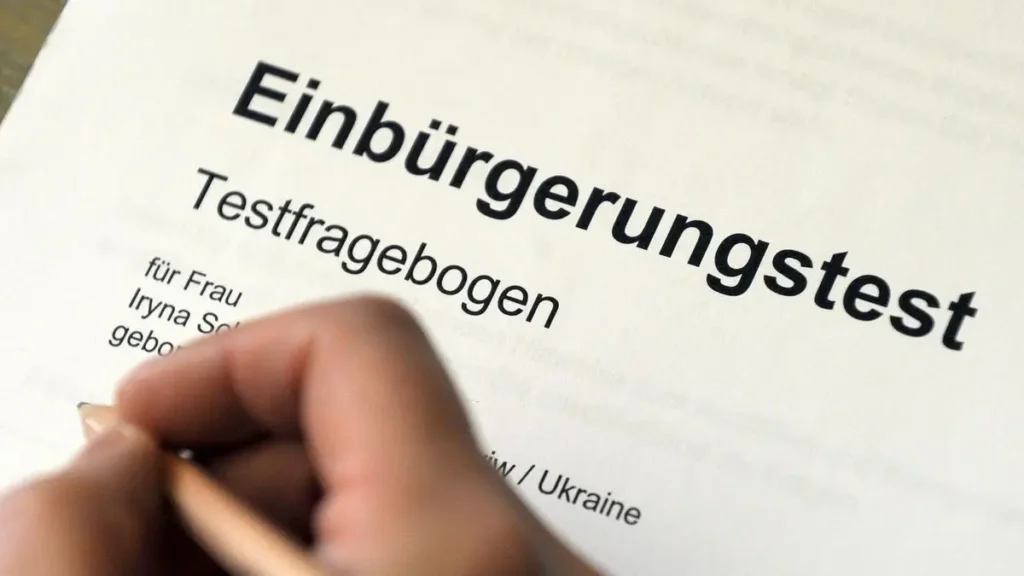Germany for Indians, with its robust economy, high quality of life, and central position in the European Union, has long been an attractive destination for Indians seeking new opportunities. The path to German citizenship, however, has historically been complex and restrictive. But with the introduction of the new German citizenship law in 2024, the landscape has changed significantly, opening up new possibilities for Indian nationals aspiring to become German citizens.
This comprehensive guide delves into the intricacies of obtaining German citizenship for Indians, highlighting the recent changes in legislation and what they mean for prospective applicants. Whether you’re an Indian professional working in Germany, a student considering long-term prospects, or someone of Indian origin exploring your options, this article will provide you with valuable insights into the citizenship process.
- 1. Overview of the New German Citizenship Law
- 2. Eligibility Criteria for Indian Nationals
- 3. Dual Citizenship: A New Possibility
- 4. Naturalization Process for Indians
- 5. Fast-Track Options for Skilled Professionals
- 6. Citizenship by Descent: Options for People of Indian Origin
- 7. Benefits of German Citizenship for Indians
- 8. Challenges and Considerations
- 9. Germany for Indians FAQ
1. Overview of the New German Citizenship Law
The new German citizenship law, which came into effect in 2024, represents a paradigm shift in Germany’s approach to immigration and naturalization. This reform aims to modernize the country’s citizenship regulations, making them more inclusive and reflective of Germany’s status as a diverse, immigrant-friendly nation.
Key changes introduced by the new law include:
- Reduced residency requirements: The standard residence period required for citizenship has been shortened from eight years to five years, and in some cases, it can be as short as three years for individuals demonstrating exceptional integration.
- Dual citizenship acceptance: Perhaps the most significant change, Germany now allows dual citizenship for all applicants, removing the previous requirement for most non-EU citizens to renounce their original citizenship.
- Language proficiency flexibility: While German language skills are still required, the new law offers more flexibility in how applicants can demonstrate their proficiency.
- Streamlined procedures for certain groups: The law introduces fast-track options for skilled professionals and simplifies the process for children of foreign parents born in Germany.
- Recognition of integration efforts: The new law places greater emphasis on recognizing various forms of integration into German society, potentially shortening the path to citizenship for well-integrated individuals.
These changes collectively make German citizenship more accessible to Indian nationals and other foreign residents, reflecting Germany’s recognition of the valuable contributions made by its immigrant population.
2. Eligibility Criteria for Indian Nationals
For Indian nationals aspiring to become German citizens, understanding the eligibility criteria is crucial. The new law has modified several key requirements, making the path to citizenship more attainable for many. Let’s explore the main criteria in detail:
2.1. Residence Requirements
Under the new law, the general residency requirement has been reduced to five years of legal and continuous residence in Germany. This is a significant reduction from the previous eight-year requirement. However, there are some nuances to this rule:
- Fast-track option: Applicants who demonstrate exceptional integration, such as outstanding language skills or significant civic engagement, may be eligible for citizenship after just three years.
- Spouse of a German citizen: If you’re married to a German citizen, you can apply for citizenship after three years of residence in Germany, provided you’ve been married for at least two years.
- Continuous residence: Brief interruptions in residence, such as for study or work abroad, are generally tolerated if Germany remains the center of your life.
2.2. Language Proficiency
Demonstrating German language skills remains a key requirement, but the new law offers more flexibility:
- Standard requirement: Applicants typically need to demonstrate B1 level proficiency in German according to the Common European Framework of Reference for Languages (CEFR).
- Flexibility for older applicants: For applicants over 67 years old, the language requirement may be waived if they can communicate effectively in everyday situations.
- Alternative demonstrations: The new law recognizes various ways to prove language proficiency, including school certificates, language course completions, and practical demonstrations of language use in daily life and work.
2.3. Financial Stability
Applicants must demonstrate their ability to support themselves and their dependents without relying on social welfare benefits. This typically involves:
- Proof of regular income from employment or self-employment
- Evidence of adequate savings or assets
- For students or recent graduates, a clear plan for future employment in Germany
The exact financial requirements can vary based on individual circumstances and the cost of living in different parts of Germany.
2.4. Integration and Civic Knowledge
The new law places increased emphasis on integration into German society:
- Citizenship test: Applicants must pass a citizenship test demonstrating knowledge of German law, society, and living conditions.
- Commitment to democratic values: Applicants must declare their commitment to the free democratic basic order laid down by German Basic Law.
- Civic engagement: Voluntary work or participation in community activities can be considered positively in the application process and may even lead to a fast-track option.
3. Dual Citizenship: A New Possibility

One of the most significant changes in the new German citizenship law is the acceptance of dual citizenship. This change is particularly relevant for Indian nationals, as it removes a major barrier that previously deterred many from applying for German citizenship.
Key Points About Dual Citizenship:
- No renunciation required: Indian nationals can now retain their Indian citizenship while acquiring German citizenship. This was not possible under the old law for most non-EU citizens.
- Benefits for families: This change allows families to maintain stronger ties with both countries, facilitating travel and potentially business or educational opportunities in both India and Germany.
- Implications for Indian citizenship: While Germany now allows dual citizenship, applicants should be aware of India’s stance on dual citizenship. India does not recognize dual citizenship, so acquiring German citizenship may affect your Indian citizenship status.
- Overseas Citizenship of India (OCI): For those who must relinquish Indian citizenship, the OCI card offers an alternative way to maintain connections with India, providing many of the benefits of citizenship except for political rights.
- Tax considerations: Dual citizens should be aware of potential tax obligations in both countries and may need to seek professional advice to navigate these complexities.
The acceptance of dual citizenship represents a major shift in Germany’s approach to integration and reflects the reality of our globalized world. For many this change in Germany for Indians, removes a significant emotional and practical barrier to fully embracing their life in Germany while maintaining ties to their Indian heritage.
4. Naturalization Process for Indians
The naturalization process is the formal procedure through which Indian nationals can acquire German citizenship. While the new law has made some aspects of this process more accessible, it remains a detailed and thorough procedure. Here’s a step-by-step guide to help Indian applicants navigate the naturalization process:
4.1. Required Documents
Gathering the necessary documents is the first crucial step. Typically, you’ll need:
- Valid Indian passport
- Birth certificate
- Marriage certificate (if applicable)
- Proof of residence in Germany (registration certificate or Meldebescheinigung)
- Proof of language proficiency (usually a B1 German language certificate)
- Employment contract or proof of income
- Rental agreement or property ownership documents
- Certificate of good conduct (polizeiliches Führungszeugnis)
- Certificates of any educational qualifications obtained in Germany
4.2. Application Procedure
- Initial consultation: Schedule an appointment with your local citizenship authority (Staatsangehörigkeitsbehörde) for an initial consultation.
- Submit application: File your application along with all required documents. The authority will provide you with a list of any additional documents needed.
- Pay the fee: The naturalization fee is typically around €255, but this can vary. Some states offer reduced fees for children or low-income applicants.
- Wait for processing: The processing time can vary significantly depending on the complexity of your case and the workload of the local authority. It typically takes several months to a year.
- Attend interviews: You may be called for one or more interviews to assess your integration and commitment to German values.
- Take the citizenship test: If you haven’t already done so, you’ll need to pass the citizenship test.
- Citizenship ceremony: If your application is approved, you’ll be invited to a citizenship ceremony where you’ll receive your certificate of naturalization.
4.3. Citizenship Test
The German citizenship test is a crucial component of the naturalization process:
- It consists of 33 multiple-choice questions, of which you must answer at least 17 correctly to pass.
- Questions cover German history, culture, legal system, and social norms.
- You can prepare for the test using official study materials provided by the Federal Office for Migration and Refugees (BAMF).
- Some states offer integration courses that include preparation for this test.
5. Fast-Track Options for Skilled Professionals
Recognizing the value of skilled professionals to the German economy, the new citizenship law introduces fast-track options for certain categories of applicants. This is particularly relevant for many Indian nationals who come to Germany for high-skilled jobs in sectors like IT, engineering, and science.
Key Features of Fast-Track Options:
- Reduced residency requirement: Skilled professionals may be eligible for German citizenship after just three years of residence in Germany, instead of the standard five years.
- Language proficiency: While B1 level German is still required, there may be more flexibility in how this can be demonstrated for professionals working in international environments.
- Integration assessment: Factors such as academic achievements in Germany, professional success, and involvement in German professional associations may be considered as evidence of integration.
- Spouse and children: The fast-track option may also extend to the spouse and minor children of the skilled professional.
Eligibility for Fast-Track Naturalization:
To qualify for fast-track naturalization, applicants typically need to meet criteria such as:
- Holding a job that matches their qualifications
- Demonstrating above-average integration into German society
- Showing proficiency in the German language
- Having a clean criminal record
- Demonstrating commitment to the German constitutional order
This fast-track option represents Germany’s efforts to attract and retain global talent, making it an attractive destination for skilled Indian professionals looking to build long-term careers and lives in Europe.
6. Citizenship by Descent: Options for People of Indian Origin
For people of Indian origin with ancestral ties to Germany, the path to German citizenship might be even more straightforward through the principle of citizenship by descent. This option is particularly relevant for individuals whose parents or grandparents were German citizens.
Key Points About Citizenship by Descent:
- Automatic citizenship: If you were born to at least one German parent, you may have automatically acquired German citizenship at birth, even if you were born outside Germany.
- Generational limitations: Generally, German citizenship can be passed down for one generation born abroad. After that, additional conditions may apply.
- Historical considerations: Due to historical events, some people of Indian origin might have German ancestry dating back to the early 20th century or even earlier. In such cases, researching family history can be crucial.
- Documentation requirements: Proving citizenship by descent typically requires extensive documentation, including birth certificates, marriage certificates, and proof of German citizenship of ancestors.
- Dual citizenship allowed: If you qualify for German citizenship by descent, you can typically maintain your Indian citizenship as well, thanks to the new law allowing dual citizenship.
Steps to Claim Citizenship by Descent:
- Research your family history: Gather as much information as possible about your German ancestors.
- Collect documents: Obtain birth certificates, marriage certificates, and any documents proving your ancestor’s German citizenship.
- Contact German authorities: Reach out to the nearest German embassy or consulate to inquire about the process.
- Apply for a Certificate of Citizenship: This document (Staatsangehörigkeitsausweis) officially confirms your German citizenship.
For people of Indian origin with German ancestry, exploring this option can potentially provide a direct route to German citizenship, bypassing many of the requirements of the standard naturalization process.
7. Benefits of German Citizenship for Indians
Acquiring German citizenship offers numerous advantages for Indian nationals, extending far beyond the right to live and work in Germany indefinitely. Here are some key benefits:
- EU Freedom of Movement: German citizens have the right to live, work, and study in any EU member state without requiring additional visas or work permits.
- Visa-Free Travel: A German passport provides visa-free or visa-on-arrival access to over 180 countries, significantly more than an Indian passport.
- Political Participation: German citizens can vote in local, state, federal, and European elections, allowing full participation in the democratic process.
- Enhanced Job Opportunities: Some positions in the public sector and certain regulated professions are reserved for EU/German citizens.
- Social Security Benefits: Full access to Germany’s comprehensive social security system, including healthcare, unemployment benefits, and pension schemes.
- Education Benefits: Access to free education in Germany and other EU countries, including at the university level.
- Consular Protection: German citizens are entitled to consular protection from any EU member state when traveling outside the EU.
- Business Opportunities: Easier access to start and run businesses across the EU market.
- Property Ownership: While non-EU citizens can buy property in Germany, citizenship removes any potential restrictions in other EU countries.
- Cultural Integration: Citizenship often leads to a deeper sense of belonging and integration into German society.
These benefits make German citizenship an attractive prospect for many Indians, offering enhanced global mobility, economic opportunities, and a high quality of life.
8. Challenges and Considerations
While the path to German citizenship has become more accessible for Indian nationals, it’s important to be aware of potential challenges and considerations:
- Language Barrier: Achieving B1 level German proficiency can be challenging, especially for those working in English-speaking environments.
- Cultural Adaptation: Integrating into German society and understanding cultural nuances takes time and effort.
- Career Implications: Some Indian professionals may need to have their qualifications recognized in Germany, which can be a complex process.
- Tax Obligations: Dual citizens may face complex tax situations and should seek professional advice.
- Military Service: While rare, German citizens can theoretically be called for military service in times of need.
- Impact on Indian Citizenship: Acquiring German citizenship may lead to the loss of Indian citizenship, as India doesn’t recognize dual citizenship.
- Family Considerations: Decision to naturalize can affect family members differently, especially if not all family members are eligible or choose to naturalize.
- Long-Term Commitment: Citizenship represents a long-term commitment to Germany, which should be carefully considered.
- Bureaucratic Process: The application process can be lengthy and requires patience and attention to detail.
- Emotional Aspects: The decision to change citizenship can have emotional implications, potentially affecting one’s sense of identity and belonging.
Being aware of these challenges allows Indian nationals to make an informed decision and prepare adequately for the naturalization process.
9. Germany for Indians FAQ
To address common queries about German citizenship for Indians, here are answers to some frequently asked questions:
- Q: Can I keep my Indian citizenship when I become a German citizen?
A: Under the new German law, you can keep your Indian citizenship. However, India doesn’t recognize dual citizenship, so you may lose your Indian citizenship upon acquiring German citizenship. - Q: How long does the naturalization process take?
A: The process typically takes 6-24 months, depending on individual circumstances and the workload of local authorities. - Q: Do I need to speak perfect German to become a citizen?
A: No, but you generally need to demonstrate B1 level proficiency, which allows




